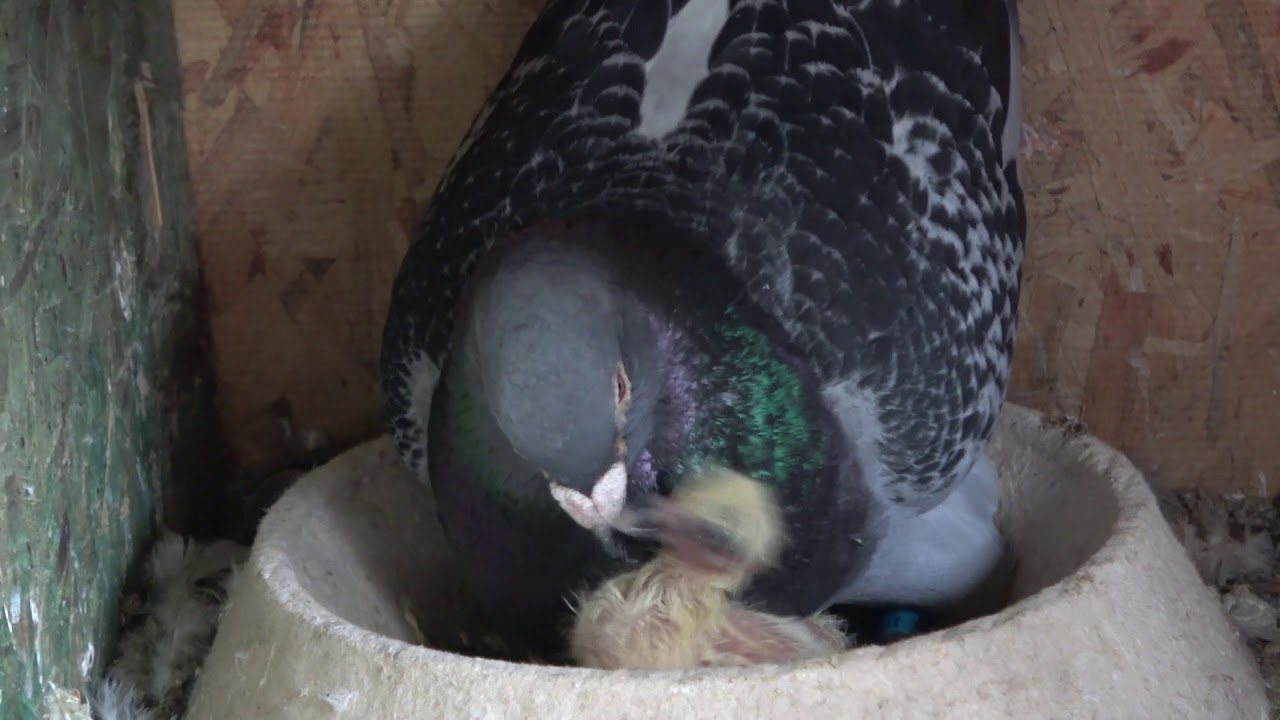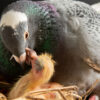
Nutrient Deficiency During Breeding How to Keep Racing Pigeons Healthy and Fertile
In the world of racing pigeons, breeding season is more than just pairing birds—it’s about preparing for the next generation of champions. But even with the best bloodlines and perfect pairings, one factor can quietly sabotage your breeding success: nutrient deficiency.
Lack of essential vitamins and minerals during breeding can lead to:
-
Low fertility
-
Weak or deformed squabs
-
Poor parental care
-
Increased chick mortality
In this guide, we’ll break down how and why nutritional gaps occur, the early signs of deficiency, and how to craft a breeding diet plan that fuels fertility, supports healthy squab growth, and keeps both parents in top condition.
Why Nutrition Is Critical During the Breeding Cycle
Racing pigeons experience one of the highest physical and metabolic demands during the breeding season. The body shifts into overdrive to:
-
Produce healthy eggs
-
Generate crop milk
-
Maintain weight and immune strength
-
Raise one or two squabs in a short time
If the birds are not fed a balanced, nutrient-rich diet, their bodies struggle to meet these demands. The result? Infertility, poor egg development, poor hatch rates, and squabs that fail to thrive.
And here’s the kicker: even small deficiencies—just 10% too little of a key vitamin—can derail breeding success.
Common Nutrient Deficiencies in Breeding Pigeons
Let’s take a look at the most common deficiencies that affect racing pigeons during the breeding season, and what each one means for your birds.
1. Vitamin A Deficiency
-
Symptoms: Poor hatchability, respiratory issues, weak immunity
-
Effect: Squabs may be born weak or deformed, parents may show slow healing and eye issues
2. Calcium Deficiency
-
Symptoms: Thin-shelled eggs, egg binding, muscle tremors
-
Effect: Breeding hens may lay eggs that crack or won’t hatch; fertility rates drop
3. Vitamin D Deficiency
-
Symptoms: Weak legs in squabs, poor calcium absorption
-
Effect: Even with calcium in the diet, squabs may suffer from soft bones or rickets
4. Vitamin E & Selenium Deficiency
-
Symptoms: Infertility, poor sperm quality, muscle weakness
-
Effect: Cocks may become temporarily infertile, hens may abandon eggs
5. B-Vitamin Deficiency
-
Symptoms: Poor egg development, weak crop milk production
-
Effect: Parents tire easily, squabs may suffer from nervous system issues
6. Protein and Amino Acid Deficiency
-
Symptoms: Slow squab growth, muscle wasting in parents
-
Effect: Squabs take too long to fledge or fall behind in growth charts
Causes of Nutrient Deficiency in Racing Pigeons
You might be thinking, “But I give my birds a good feed mix—why would they be deficient?” Here’s why:
1. Low-Quality Feed
Many commercial grain mixes are energy-rich but lack the full spectrum of essential micronutrients. Over time, birds using only grain-based diets develop subtle deficiencies.
2. Unbalanced Diet
Relying too heavily on one type of seed (like corn or peas) can tip the balance and crowd out other key nutrients. Breeders need a balanced mix to support egg production and crop milk.
3. Increased Demand During Breeding
Even if a diet is sufficient for off-season maintenance, it may not meet the heightened nutritional needs during breeding.
4. Poor Absorption
Birds with underlying gut health issues, parasites, or stress may not absorb nutrients efficiently—even if they’re getting the right diet.
Recognizing the Warning Signs of Nutrient Deficiency
Catch these issues early to prevent loss of eggs, squabs, or even breeders.
Watch for:
-
Eggs not hatching or infertile eggs
-
Delayed egg-laying
-
Soft-shelled or broken eggs
-
Squabs not gaining weight or growing slowly
-
Shaky or unstable leg posture in squabs
-
Parents losing condition quickly during feeding
If you’re noticing two or more of these signs, it’s time to act.
Creating a Breeding Diet That Prevents Deficiency
Let’s talk solutions.
1. Start with a High-Quality Breeding Mix
Look for a grain blend specifically formulated for breeders, ideally with:
-
16–18% protein
-
Varied legumes (peas, lentils, vetch)
-
Smaller grains for balance (millet, safflower)
-
Added oils or pellets (optional)
Avoid mixes high in corn or sunflower alone—they’re energy-rich but nutrient-poor.
2. Use Targeted Supplements
This is where many breeders make the biggest gains. Supplements fill the nutritional gaps in grain mixes, especially during high-stress periods like breeding.
Recommended Supplements:
-
PHP Breeding Boost:
Specifically designed for breeding performance, this supplement includes vitamins A, D3, E, selenium, calcium, and amino acids to support fertility and chick growth. -
Probiotics & Gut Health Boosters:
A healthy gut means better nutrient absorption. Use probiotics weekly or after antibiotic use. -
Grit and Minerals:
Provide grit with crushed oyster shells and red mineral block for trace elements. -
Multivitamins:
A full-spectrum vitamin blend 2–3 times per week during breeding helps keep both parents and squabs in top shape.
Tip: Introduce supplements 2–4 weeks before the breeding season to build up reserves.
3. Watch Water Quality
Contaminated water can interfere with supplement uptake and introduce bacteria that disrupt gut health. Clean waterers daily and consider adding electrolytes or vitamins through water on hot days or during stress.
Support Parental Health During Breeding
Don’t forget—the parents are the delivery system. If their health declines, so does the quality of crop milk and parental care.
Support tips:
-
Monitor weight and feather condition
-
Provide extra feeding during chick-rearing (twice daily grain)
-
Offer rest days between clutches for recovery
-
Minimize stress from handling or environmental changes
What About Natural Supplements?
Some breeders use herbal tonics like garlic oil, oregano oil, or apple cider vinegar. These can help support immunity and gut health when used sparingly—but they’re not a substitute for scientifically balanced vitamin and mineral supplementation.
Troubleshooting: If You’re Still Having Problems…
If you’re still struggling with fertility or weak squabs, consider these next steps:
-
Do a fecal test to rule out internal parasites
-
Check for hidden respiratory infections that may be sapping energy
-
Review loft ventilation and lighting
-
Test your feed and water for mold or contamination
-
Consult a vet for possible mineral imbalance or genetic issues
Final Thoughts
Breeding success starts with strong nutrition. Even the best bloodlines and breeding strategies can’t overcome the effects of vitamin and mineral deficiency. Don’t leave your next champion’s fate to chance—build a complete breeding diet plan that supports fertility, parental health, and chick development from day one.
Recap:
Choose a high-quality breeding mix
Supplement with a product like PHP Breeding Boost
Start your nutrition plan before pairing up
Support parents with rest, clean water, and probiotics
Watch for early warning signs and correct immediately
Ready to give your breeders the ultimate edge this season?
Explore our full line of performance-focused supplements, including PHP Breeding Boost, designed specifically for racing pigeon breeders who want stronger fertility, healthier chicks, and championship results.


